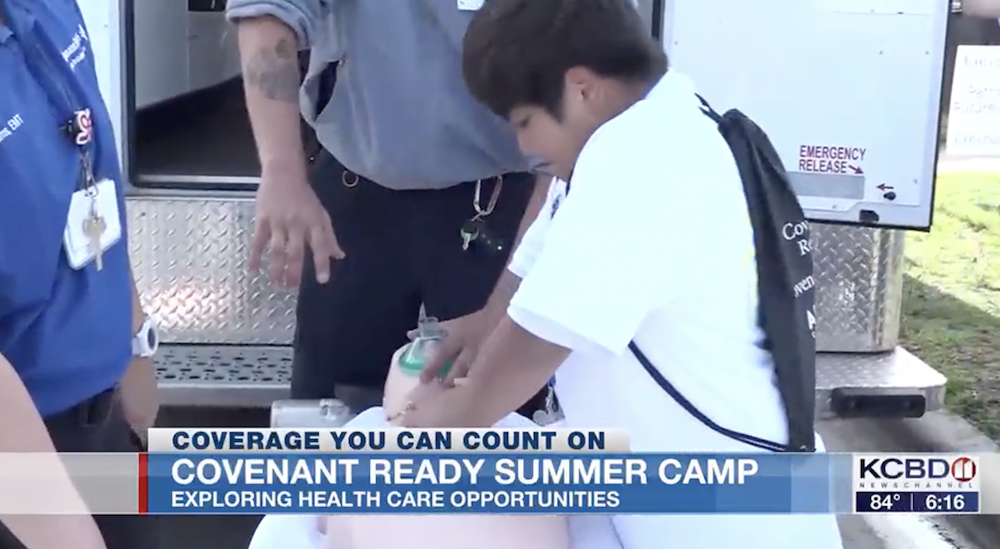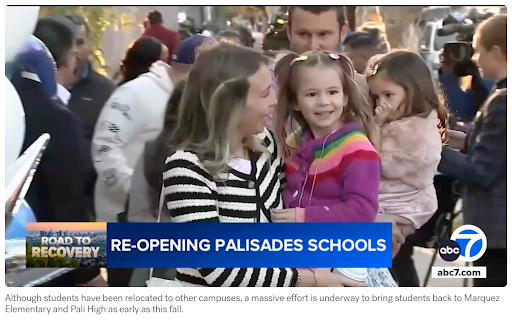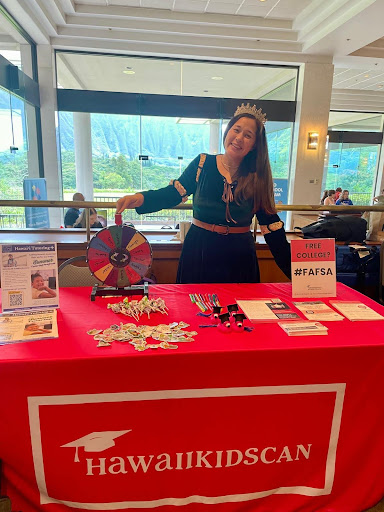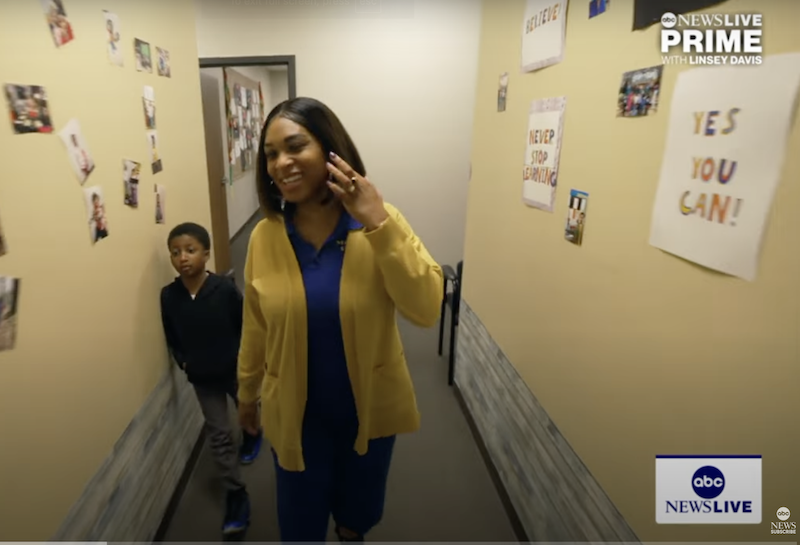Jump to: Top Tasks | From the Field | Key Resources | Moments of Resilience
It’s week 194 of our new reality and we are taking a moment in this last Roundup of the year to both look back on what we have learned and look forward to the year ahead.
Any way you look at it, this is a year in which education advocates stepped up.
As detailed below, across the 50CAN network our local teams secured 30 policy wins for kids across the five pillars of Believe in Better. That means millions more kids will have real choices to find the education that is right for them, small group tutoring if they fall behind, free summer camp for new friends and new experiences, the opportunity to learn new skills on the path to the career they choose and so much more. Combined with the more than 100 wins from partner organizations, we collectively took a huge leap forward this year in building the education system of the future.
At the same time, every new research study points to the urgency of the crisis our children face. We are moving fast, but we have to move faster. We are aiming high in our goals, but we have to aim higher. In 2024, we won’t have a second to waste.
SUBSCRIBE
We are so proud to be on this journey with you. This is the work we have been preparing our whole lives to do and it couldn’t be any more important to the future of our country and the future of the world.
We have an amazing 2024 planned that will start off with a bang in January. We can’t wait to share it with you in the New Year.
As one of our dedicated readers, we hope you’ll share the Roundup with colleagues and friends. Newcomers can sign up for this newsletter to be sent to your inboxes twice a month.
TOP TASKS
Feed the Opportunities, Starve the Problems
We live in an age that continually draws our attention towards the negative: small mistakes, outright failures and everything in between. But as we reflect on the year in education, it’s worth taking stock of the sage advice of Peter Drucker in his 1966 classic The Effective Executive:
Effective leaders do not seek “to minimize weaknesses but to maximize strength … In every area of effectiveness within an organization, one feeds the opportunities and starves the problems.”
That’s good advice for movements, too.
We have tremendous opportunities ahead of us as we chart our path forward in 2024, including:
- Pandemic-era innovations that are working. Over the past three years we have seen an unprecedented investment in tutoring, summer camps, microschools and more. We have an enormous opportunity to build upon these experiments by making the best of them a permanent feature of the education system of the future.
- Families voting with their feet. The school closures of 2020 continue to reverberate throughout American education including at the most basic level on where parents send their kids to school. Big shifts towards charters, independent schools, homeschooling and more show no signs of returning to pre-2019 levels and advocates have a once-in-a-generation opportunity to lean into these shifts by making funding much more family-friendly and working with instead of against parental choice.
- A resurgent grassroots. After decades of expert-driven, top-down advocacy, a more grassroots approach to change is resurgent. We see this close to home in the campaign strategies and tactics used at 50CAN, where over the past decade community organizing has grown into a central element of the majority of our campaigns and we see this in dozens of partners across the country as well. This advocacy energy will be critical in 2024 and beyond.
Making the most of these opportunities must be central to our plans for the year ahead. “Courage rather than analysis dictates the truly important rules for identifying priorities,” Drucker reminds us. “Pick the future as against the past; Focus on opportunity rather than on problem; Choose your own direction—rather than climb on the bandwagon; and Aim high, aim for something that will make a difference, rather than for something that is ‘safe’ and easy to do.”
THE TASK OF THE WEEK IS
FROM THE FIELD
When we announced our 2023 policy goals at the beginning of the year, we promised that we would provide you with candid updates in this newsletter over the course of the year. Now, as 2023 comes to a close, we want to bring all those updates together into a final assessment of our wins, our losses and areas where we intend to build on progress.
In 2023, the state campaigns of the 50CAN network achieved 30 policy victories advancing our Believe In Better vision out of the 46 original goals announced in January. As we take stock of the end of another year in an education system that’s rapidly changing, we want to highlight some of our favorite and most impactful wins that are building toward the future of American education.
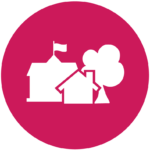 The Education That’s Right for You
The Education That’s Right for You
CarolinaCAN passed a universal ESA, giving every student access to up to $7,600 for tuition or other educational expenses.
TEN Colorado implemented a transportation pilot to support students leaving a perennially underperforming district for others in the state.
TennesseeCAN expanded the reach of the state ESA to Chattanooga, while also securing $22 million for charter facilities.
 Tutoring and Care for All
Tutoring and Care for All
Louisiana Kids Matter guaranteed tutoring access for every student in the state at risk of falling behind, and is partnering with the state to pilot daily tutoring in schools.
JerseyCAN obtained $6.5 million in the state budget for tutoring students in academic need.
NewMexicoKidsCAN ensured students will receive research-based literacy instruction, by creating a list of state-approved curriculum.
TennesseeCAN secured the funding for summer learning camps to continue indefinitely.
 A World of Open and Connected Learning
A World of Open and Connected Learning
HawaiiKidsCAN expanded computer science classes from high school to the lower grades, created a mandate for the state to determine a process to allow students to obtain credits outside the classroom, while also working with the DOE to build “Learn Everywhere” into their strategic plan.
 A Family’s Right to Know What’s Working
A Family’s Right to Know What’s Working
TEN Colorado secured the creation of a commission, as well as a seat on it, to take a hard look at the state’s accountability framework and to recommend updates.
ConnCAN passed the English Language Learner’s Bill of Rights, codifying information and support for families.
 A Clear Path to a Career
A Clear Path to a Career
NewMexicoKidsCAN created a workforce pathway to overcome licensure barriers for career tradesmen to teach CTE courses to students.
GeorgiaCAN required new reporting on success and reach of dual enrollment programs as the state prepares to expand pathways.
Congratulations to the state CANs and their teams for a 2023 that truly moved the needle for kids. We’re excited to double down on this progress as we push forward even further in 2024.
Key Resources
Our favorite resources from 2023, one from every month of the year:
January: A report from Urban Institute found that, as a result of pandemic learning loss, average annual wages for current K-12 students will be 3.2% lower at age 30.
February: Chad Aldeman with the data in the 74 Million: schools are adding teachers despite seeing year-over-year drops in student enrollment.
March: FutureED published a national analysis of the wave of private school choice bills over the past two years, noting that lawmakers in 32 states have sponsored legislation to increase access to vouchers, scholarships or ESAs.
April: The American Enterprise Institute highlighted charter schools that provided students with college credentials upon graduation.
May: Brookings Institution reported on high-schoolers’ unequal access to extracurricular activities concludes that there are deep disparities in the current system.
June: Garrett Ballengee wrote for Education Next that passing ESAs is only the base camp and not the summit, with work for advocates to continue to do in the realm of public relations, case management and coalition building.
July: yes. every kid. put a spotlight on states that allow all students–including homeschooled students–to access public school courses and extracurriculars, along with strong examples of legislative language.
August: Research by the World Bank’s Harry Anthony Patrinos found that for every week that schools were closed learning levels declined by 1% of a standard deviation, meaning that a 20 week closure would reduce learning outcomes by 0.20 standard deviation or almost one year of schooling.
September: The Economist reported on new research that finds that schools are the least economically integrated institutions in the United States.
October: A Ed Working Paper suggested that academic leniency leads to not only inflated GPAs, but also wider achievement gaps and more missed school days by low income students.
November: Writing for the Philadelphia Inquirer, Lynette Hazelton and Nate File looked into why so many Philly kids still aren’t going to school regularly.
December: The winner of the Fordham Institute’s Policy Wonk-a-Thon was none other than 50CAN National Voices alumnus Alex Spurrier, who along with Bellwether colleague Amy Chen Kulesa, wrote on the promise and potential of AI for learners.
Moment of Resilience
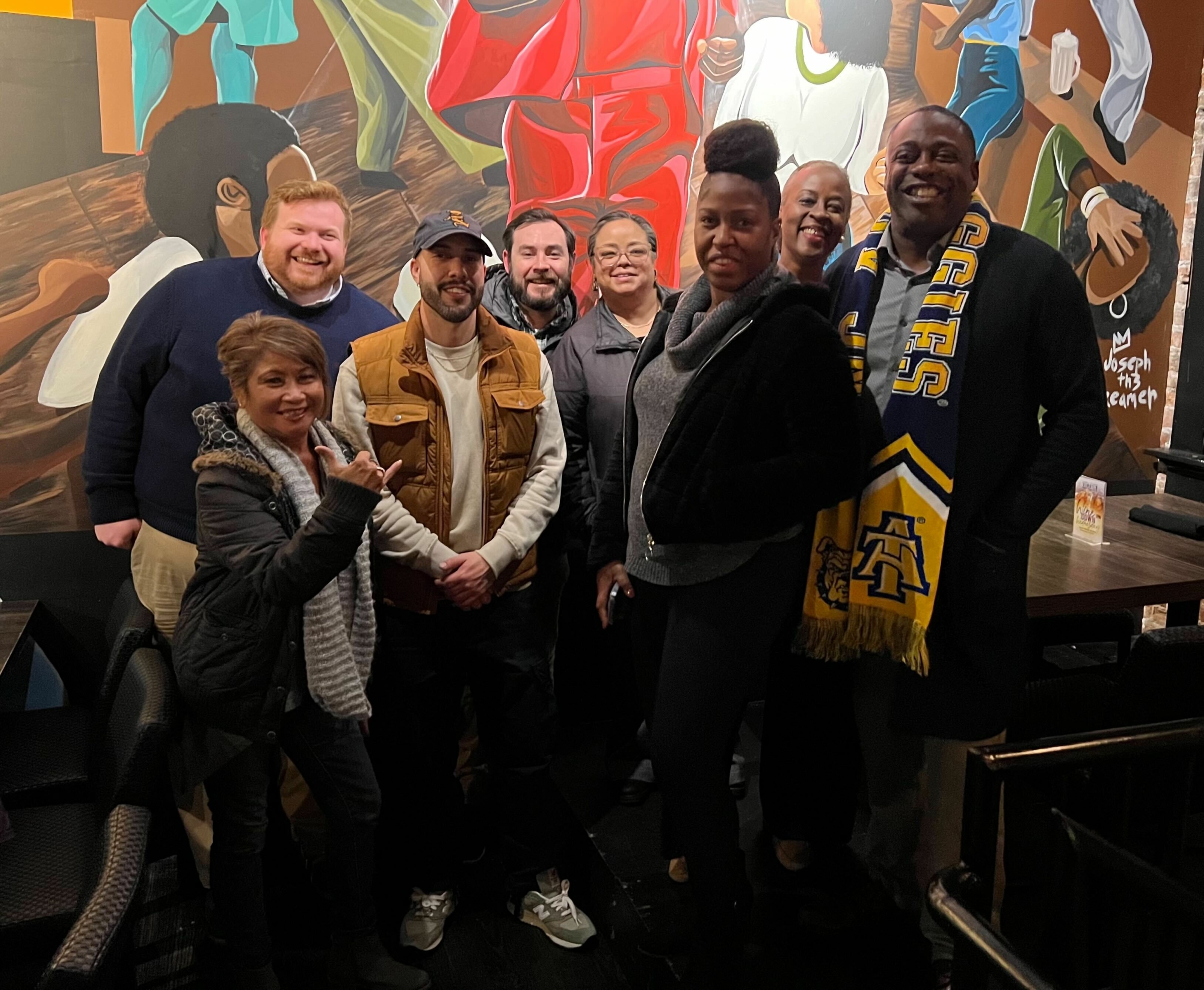
National Organizing Manager Steven Quinn brought together outreach staff and community organizers at our network’s first dedicated organizing retreat. The organizers shared best practices for their work to elevate the voices of students and their families, explored ways to maximize the use of technology and practiced the tactical skills needed to build relationships and drive supporters to action.


